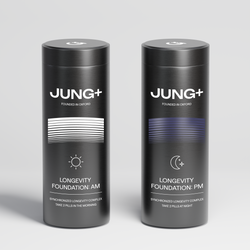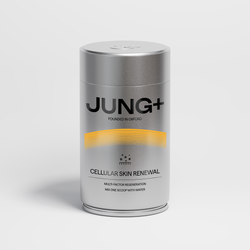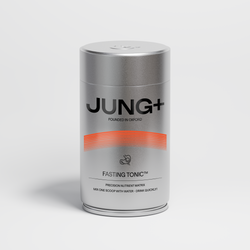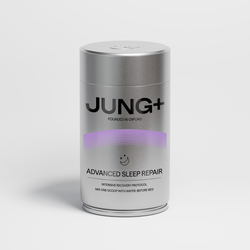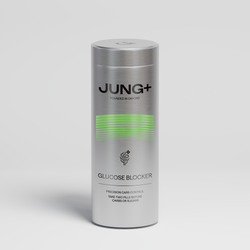Summary - Have you ever pondered the intricacy and marvel of our skin? It serves as our shield against the external world, safeguarding us from various elements. Additionally, it plays a vital role in preserving our health, longevity, and overall well-being. Let's delve into the profound correlation between healthy skin and general wellness. Discover how luminous skin mirrors your internal health and explore ways to sustain it.
Beyond aesthetics – the significance of healthy skin
The modern world offers consumers an overwhelming array of skincare products. For the face, body, feet, and palms. Catering to sensitive, dry, atopic, oily, combination, and normal skin. Products designed to maintain skin tone, radiance, color, and hydration are abundant. You can find multi-step skincare routines ranging from three products to a dozen. Beautiful, well-groomed skin is the goal, aspiration and desire of millions of people, which is actively stimulated by society through media. Even in ancient times, people aspired to have clean and youthful skin, but today, the attention given to it has reached its peak, thanks in part to filters from some social media. However, is it truly essential to care for your skin primarily for aesthetic pleasure? Or is there something more important?
Skin as the body's largest organ: Roles and responsibilities
Interestingly, the skin is the largest and heaviest organ in our body. Covering an area of about two square meters, weighing around ten kilograms, and with a thickness of only a few millimeters, we seldom think of it as a separate organ like the heart or the liver. Yet, without it, our life would hardly be possible. The skin participates in vitamin D metabolism, thermoregulation, immune response, maintenance of water and salt balance, and even breathing and excretion.
Of course, the primary role of the skin is to serve as a formidable barrier, protecting internal organs from external threats. All your organs are protected from the outside world - except your skin, which is designed to protect them. So you can imagine how important this function is. The outermost layer of the skin, the epidermis, creates a protective shield against pathogens, harmful substances, and unfavorable environmental factors, thereby preventing infections, toxins, and maintaining overall health.
The second major role is sensory. Acting as a sensory interface with the external environment, the skin is equipped with various receptors for touch, temperature, pressure, and pain. These receptors provide important feedback, allowing the body to respond to stimuli and navigate the environment effectively.
The direct relationship between skin health and internal wellbeing
Our skin, acting as a mirror to our internal state, echoes the effects of our lifestyle, nutrition, sleep, and overall health.
Stress has a multidirectional impact on the body, and, of course, it manifests itself on the skin. Stress triggers the hypothalamic-pituitary-adrenal (HPA) axis, a trio of glands playing a pivotal role in the body's response to stress. These glands produce cortisol and catecholamine, activating immune cells in the skin and triggering a cascade of related processes [1]. Acute stress may result in itching, redness, or rashes, while chronic stress exacerbates them and can lead to atopic dermatitis, psoriasis, and even hair loss [2]. Moreover, the skin can produce stress hormones on its own in response to external stimuli such as ultraviolet radiation (UV) and send signals to the brain triggering HPA activation [2].
Nutrition is crucial not only for maintaining beauty but also for the health of the skin, ensuring its proper functioning. With food, we acquire the substances necessary to initiate the complex biochemical cascade of cholesterol biosynthesis in the liver. This process is then converted into vitamin D in the human skin under the influence of UV rays. Vitamin D plays a pivotal role in helping the body absorb calcium and phosphorus, essential for bone growth. It also inhibits the growth of cancer cells, bolsters the immune system against infections, and mitigates the severity of inflammation. Additionally, vitamin D contributes to the normal functioning of the neuromuscular, endocrine, and immune systems [3].
Sleep significantly contributes to maintaining skin tone and overall health. It's not just about avoiding wrinkles while you sleep; rather, sleep plays a multifaceted role. It reduces cortisol levels, thereby alleviating stress, enhances the supply of nutrients and oxygen to the skin through increased blood flow, minimizes the impact of harmful external factors (no radiation or air pollution in bed!), and allows skin cells to undergo regeneration [4].
The skin serves as a protective barrier that shields the body from external threats and helps to maintain health. A breach of this barrier, caused by environmental factors or internal imbalances, can compromise not only the health of the skin but also the immune system as a whole.
Skin and senescent ‘zombie’ cells - what you need to know
Senescence, a state in which cells cease to divide and lose their function, can have significant consequences for skin health [5]. As time progresses, senescent cells also known as “zombie” cells accumulate in the skin, leading to wrinkles, loss of elasticity, and a diminished ability to regenerate, reducing overall functionality. Moreover, the presence of senescent cells can contribute to the development of chronic inflammation, creating a feedback loop that exacerbates skin aging. Furthermore, these cells negatively impact their microenvironment causing premature aging of surrounding cells. The disruption caused by senescent cells can result in decreased collagen production, contributing to sagging skin and the formation of wrinkles [6,7].
Moreover, the skin is the largest site of senescent cell build-up. The concern is that these senescent cells don't remain confined to the skin; they travel through the bloodstream and end up in your brain, heart, and other organs, releasing harmful compounds and accelerating aging throughout the body [8]!
How skin health impacts overall longevity
The concept of the relationship between skin aging and external factors emerged in the 1980s and has been actively researched ever since. Healthy skin is one of the critical factors in preserving longevity and overall health. Upholding the barrier function ensures sufficient immunity levels and averts the onset of chronic inflammation, which, in turn, can trigger cellular senescence. Furthermore, skin cells represent a potential origin of senescent cells capable of circulating throughout the body via the bloodstream, fostering premature aging throughout the body and organs.
Lifestyle and dietary tips for maintaining healthy skin
Ensure you get 7-9 hours of sleep daily, avoid consuming coffee in the late afternoon, establish a pre-sleep ritual to facilitate faster sleep onset. In addition to cutting down on coffee, minimize your consumption of fatty and salty foods before bedtime. Let your skin rest and rejuvenate!
While our bodies need the sun to produce vitamin D, excessive exposure to its rays can result in sunburn, damage to healthy skin cells, and increase the likelihood of several cancers. Therefore, it is essential to practice moderation and protect your skin! Utilize mineral based sunscreen, seek shade if you plan to stay outside for an extended period, cover your skin with clothing, and generally aim to minimize direct sunlight exposure, especially during peak hours from 10 a.m. to 4 p.m. And use vitamin D supplements to avoid its deficit.
If you have irregular work hours, consider one of the intermittent fasting options. This approach aids in establishing a schedule, ensuring you abstain from eating for a couple of hours before going to bed. Fasting itself triggers the mechanisms of cellular renewal in the skin, and during sleep, this process becomes more effective!
The key point during intermittent fasting is to avoid products that can significantly increase blood sugar levels. High sugar levels in your body can damage the collagen in your skin, contributing to premature aging and acne. So don't forget to regulate your glucose levels!
One of the pivotal factors influencing skin health is hydration. Following a comprehensive hydration regimen significantly contributes to maintaining the skin's moisture levels. This doesn’t stop at creams, but drinking enough water! Moreover, certain supplements, like hyaluronic acid, N-acetylglucosamine, and ceramides can play a crucial role in attracting water to the skin and preventing intense water loss [9].
Other supplements support skin health and beauty differently. Collagen formation, which is necessary for firmness and elasticity in the skin, requires Vitamin C [10]. Vitamin E stands out as a significant antioxidant for the skin, shielding it from free radical damage and potentially reducing the likelihood of wrinkles [11, 12]. Spermidine is a natural polyamine known for its senolytic properties. The skin serves as a depot for senescent cells, which, over time, disseminate throughout the body and produce a range of 'toxic' factors, contributing to the aging of surrounding cells. Compounds capable of eliminating senescent cells from the body are termed senolytic. Spermidine has been shown to significantly delay replicative senescence and thwart premature aging caused by oxidative stress [13]. Additionally, it protects cells from damage, induces autophagy (which diminishes with age), and reduces the accumulation of senescent cells [14]. By diminishing the number of aging cells, spermidine regulates the restoration of skin structure and barrier function. Moreover, it exerts a positive influence on health and longevity by preventing the migration of these cells in the body [15].S Astaxanthin and niacinamide actively contribute to skin repair and stimulate cell renewal, while antioxidants such as polyphenols safeguard the skin from damage caused by free radicals, contributing to its natural radiance [16, 17].
The most effective, of course, are complex supplements that contain daily doses of all the listed vitamins and active substances. Likewise, Cellular Skin Renewal offers a complete protocol targeting the multifaceted drivers of skin aging. It helps bolster cells and capillaries, clears out senescent zombie cells, stimulates NAD+, collagen, and hyaluronic acid production, and neutralizes aging accelerators like AGEs from consuming sugar, among other benefits.
Recognizing skin as the mirror of inner health
Much like a mirror reflecting our vitality, the skin serves as a visible indicator of our overall health. The complexion, clarity, and radiance of our skin often echo the harmony or imbalances within our body. When we prioritize our internal health by providing our bodies with essential nutrients, staying adequately hydrated, and managing stress, the skin responds with a natural glow and resilience.
Recognizing that the skin is a reflection of our inner health, we embark on a journey of holistic care that goes beyond external aesthetics, radiating the essence of integrity to protect against premature aging. A radiant and healthy complexion becomes not just a beauty goal but a testament to the balance and vitality thriving within.
The skin serves a surprisingly diverse range of functions beyond its barrier role and, moreover, is intricately linked to aging and longevity. A comprehensive approach to maintaining its health is absolutely essential, with a focus on internal well-being. After all, glowing skin equals a healthy body!
- Regulation of the hypothalamic-pituitary-adrenocortical stress response [2016]. Comprehensive Physiology.
- Brain-Skin Connection: Stress, Inflammation and Skin Aging [2014]. Inflammation and Allergy - Drug Targets.
- Vitamin D and the skin: Physiology and pathophysiology [2013]. Reviews in Endocrine and Metabolic Disorders.
- Tissue regeneration: Impact of sleep on stem cell regenerative capacity [2018]. Life Sciences.
- Targeting Senescent Cells: Possible Implications for Delaying Skin Aging: A Mini-Review [2016]. Gerontology.
- Cellular Senescence and Inflammaging in the Skin Microenvironment [2021]. International Journal of Molecular Sciences.
- The Senescence-Associated Secretory Phenotype: Critical Effector in Skin Cancer and Aging [2017]. Journal of Investigative Dermatology.
- An aged immune system drives senescence and ageing of solid organs [2023]. Nature.
- Effectiveness of Dietary Supplement for Skin Moisturizing in Healthy Adults: A Systematic Review and Meta-Analysis of Randomized Controlled Trials [2022]. Frontiers in Nutrition.
- The Roles of Vitamin C in Skin Health [2017]. Nutrients.
- Skin bioavailability of dietary vitamin E, carotenoids, polyphenols, vitamin C, zinc and selenium [2006]. British Journal of Nutrition.
- Serum vitamin E levels and chronic inflammatory skin diseases: A systematic review and meta-analysis [2021. PLoS One.
- The curious case of polyamines: spermidine drives reversal of B cell senescence [2020]. Autophagy.
- Polyamines reverse immune senescence via the translational control of autophagy [2020]. Autophagy.
- Spermidine-induced recovery of human dermal structure and barrier function by skin microbiome [2021]. Communications Biology.
- Effects of Astaxanthin Supplementation on Skin Health: A Systematic Review of Clinical Studies [2021]. Journal of Dietary Supplements.
- Mechanistic Basis and Clinical Evidence for the Applications of Nicotinamide (Niacinamide) to Control Skin Aging and Pigmentation [2021]. Antioxidants.

